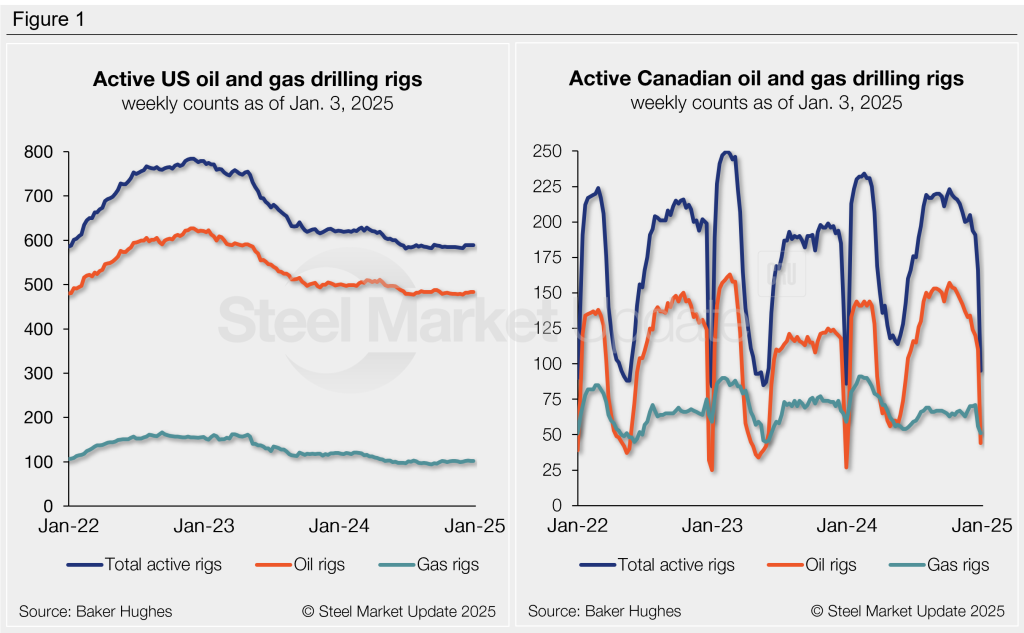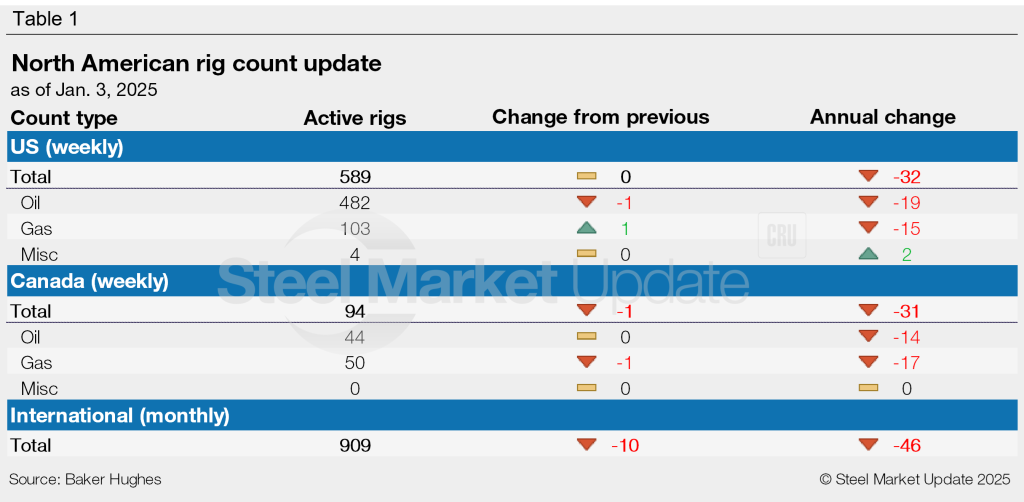Analysis
January 3, 2025
Active rig counts stable in US, slow down in Canada
Written by Brett Linton
The number of active oil and gas rigs operating in the US held steady this week for the fifth consecutive week, while Canadian activity declined further, according to the latest figures released from Baker Hughes.
US activity has remained within nine rigs of a multi-year low for the past seven months. The lowest weekly count of the year was 581 rigs in June, while the highest was 629 rigs in March.
The decline seen in Canadian rig counts this week reflects typical seasonal downturns experienced at the turn of the calendar year. Expect activity to sharply rebound in the coming weeks, as it typically does.

The international rig count (updated monthly rather than weekly) declined to 909 in December. This is down 10 rigs from November and 46 fewer than the same time last year.

The Baker Hughes rig count is important to the steel industry because it is a leading indicator of demand for oil country tubular goods (OCTG), a key end market for steel sheet. A rotary rig rotates the drill pipe from the surface to either drill a new well or sidetrack an existing one.
For a history of the US and Canadian rig counts, visit the rig count page on our website.






